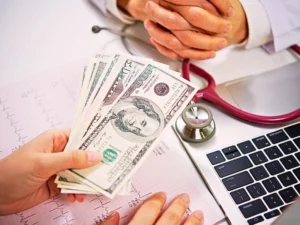
How Bankruptcy Affects Your Credit Score and How to Rebuild It in Nevada
Bankruptcy affects your credit score in many ways, but you can start rebuilding it right away. The reality is that a credit score of 700 in Nevada could fall to about 500 after bankruptcy, but within one to two years, significant increases are possible. Rebuilding includes making consistent, timely payments for current debts and keeping your balances low. By the time the bankruptcy disappears from your report, you could have an excellent credit score.

Legal advice can help with rebuilding credit after bankruptcy. Call
What Happens to Your Credit Score After Filing for Bankruptcy?
In Nevada, the average credit score
How
Bankruptcy affects your credit score depending on the type of bankruptcy, too. However, with both Chapter 7 and Chapter 13 bankruptcy, you probably can expect an immediate credit score drop of as many as 200 points or more.
- With Chapter 7: The initial drop might be more dramatic. Your bankruptcy may wipe out most of your unsecured debts such as credit card and medical bills without repayment. You do not make ongoing payments to creditors as part of your bankruptcy filing, meaning you have fewer opportunities for repayment behavior to improve your score. Fortunately, you can take other steps to be proactive about rebuilding credit after bankruptcy. Chapter 7 stays on your credit report for up to 10 years from the date of filing.
- With Chapter 13: The credit score drop may be somewhat less severe than in Chapter 7 since you agree to repay some of your debts. You follow a structured repayment plan for three to five years, with the plan offering built-in opportunities to boost your credit score and show lenders a pattern of responsibility. Chapter 13 stays on your credit report for up to seven years from the date of filing.
Which type you qualify for, Chapter 7 or Chapter 13, depends on factors such as your income and assets. To qualify for Chapter 7 in Nevada, you “pass” a means test that compares your disposable income and the median income for a household of your size in the state. Your income must be below the median to qualify. A
If your median income is above state limits, you may qualify for Chapter 13. This type works well for many people with regular, predictable income that makes it possible for them to pay some of their debts over time.
In Chapter 7, your focus may be more on getting rid of credit card, medical, and personal debt, while in Chapter 13, you may be more focused on keeping your house or car (and the loans associated with them). In Chapter 7, many of your assets may undergo liquidation to pay down some of your loans. That said, many filers qualify for exemptions letting them keep most or all of their property.
How Long Bankruptcy Affects Your Credit Score
A clear relationship exists between bankruptcy and credit score. In Chapter 7, the bankruptcy could stay on your credit report for 10 years after the filing date, while it could stay for seven years after a Chapter 13 filing date. The more recent the filing date, the greater the effect the bankruptcy should have on your credit score.
Bankruptcy affects your credit score the most right at the beginning. Immediately after bankruptcy is likely the hardest period getting new credit. If you get it, expect higher interest rates. With good financial behavior, though, you should be able to get lower interest rates and more credit opportunities within a year or so.
When to Consult a Bankruptcy Lawyer and Steps to Start Rebuilding Credit
Anyone considering bankruptcy should get bankruptcy lawyer advice. These lawyers can assess your situation, offer advice specific to your circumstances, outline the possibilities and probable outcomes of each, and guide you through the process.
- Would Chapter 7 or Chapter 13 be more suitable for me?
- How will bankruptcy impact my credit score?
- Which debts am I likely to get cleared?
- How should I start rebuilding credit after bankruptcy?
Steps to Start Rebuilding Credit After Bankruptcy
A Chapter 7 or
- Get your credit report from the major bureaus a few months after your filing, and check them for inaccuracies. Do these checks at least once a year thereafter.
- Create a budget that focuses on savings, expenses, and paying debts and bills.
- Pay your bills on time.
- Use secured credit cards. Pay on time, and keep your balances low.
- Be cautious about incurring new debts while you are managing older obligations.
Bankruptcy affects your credit score in many ways, and Randolph Law Firm can help.






